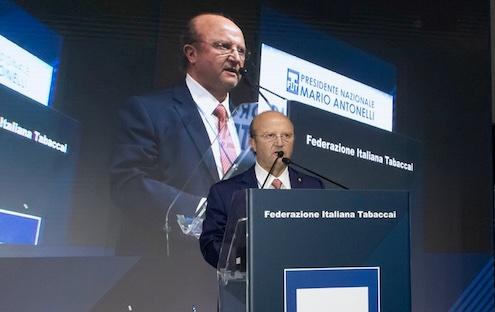At the conference of the Federation of Italian Tobacco Retailers (Fit), Mario Antonelli, President of the Italian Tobacco Federation, gave a comprehensive profile of the 21st century tobacco industry. Antonelli said Fit supports the government’s implementation of a ban on the remote sale of e-cigarettes, and said that sellers will face administrative penalties if they do not recycle disposable products, while improper recycling will face criminal penalties.
Antonelli also discussed e-cigarettes extensively as a tobacco product, and despite initial skepticism, proponents of e-cigarettes have come to dominate over the years, so much so that the small industry associations that initially supported the spread of e-cigarettes are now on board with Fit.
Call for strengthening the regulation and control of electronic cigarettes
According to Antonelli, stores that specialize in e-cigarettes are gradually being replaced by tobacco retail stores.
Antonelli believes that the current market is divided into three distribution channels, namely e-cigarette professional stores, online stores and tobacco retail stores.
Despite the intense competition, tobacco retail stores remain the preferred purchase location for about 60% of e-cigarette consumers. He believes that retailers need to maintain professionalism and continue to learn and develop this market, while also defending physical sales channels, which are currently being compromised by illegal online channels.
“Online sales have left too many loopholes, and it’s time for lawmakers to act to protect legality and public health, especially for minors, and close them.”
He also said 40 percent of users buy illegal products online. It has become increasingly difficult to curb online channels, as the Italian regulatory authorities themselves have acknowledged, and Antonelli, on behalf of the federation, supports a ban on remote sales.
“We will propose and support a ban on distance selling in various institutions in Italy and Europe.”
He said the measure was needed now to protect consumers and physical sales networks. For example, he said, if minors can freely buy more nicotine products over the Internet, then it makes no sense to strictly limit the amount of nicotine in the liquid.
Strengthen the recycling of disposable electronic cigarette equipment and set up criminal penalties
Antonelli also expressed his views on disposable products, which he believes have captured a significant share of the market.
He promised that tobacco retailers in the physical sales network would become recycling points for discarded e-cigarette devices.
“We have partnered with Logista, a large distributor, and have also linked up with the Italian environmental and electronic safety authorities. Our physical network will serve as a model for the proper disposal of waste products and the effective demonstration of the circular economy. Selling these products also means taking responsibility for participating in the disposal.”
Antonelli hopes to reach an agreement in the coming days to minimize administrative formalities and costs associated with processing.
He believes that the agreement reached will be in the interests of all.
“If the recycling is not carried out, it will face administrative penalties, and if the recycling is not handled properly, it will face criminal penalties.”
Given that e-cigarettes do not have a fixed price like traditional tobacco, he also called on his peers to:
“We are prepared to support sustainability with practical actions, because this also means that we will give ‘core’ value to the physical sales network.”
References:
【1】Sigarette elettroniche, la ricetta dei tabaccai: stop al web e recupero dell’usato










